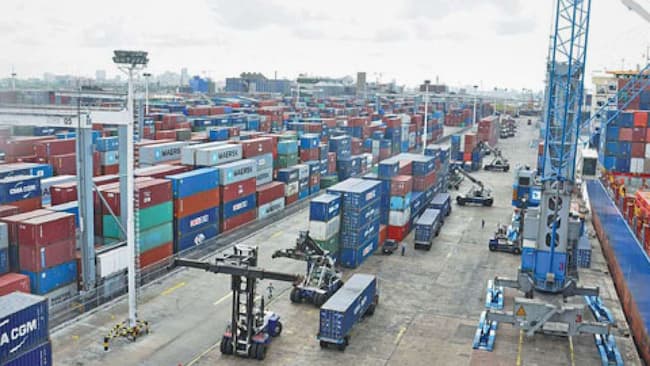China’s exports spiked more than expected in June as countries around the world pushed towards a pandemic recovery, official data showed Tuesday, while imports spiked on the back of rising commodity costs.
Demand for China’s goods has risen with the global rollout of vaccines and as economically painful lockdowns to curb the spread of Covid-19.
Supply disruptions happening sporadically with virus resurgences elsewhere have also increased reliance on products from China, where the outbreak is largely under control, analysts say.
Chinese shipments overseas surged 32.2 percent on-year last month, the Customs Administration said, much better than the 23 percent forecast and also well up from May.
Import’s also exceeded expectations, rallying 36.7 percent as the cost of key commodities such as iron ore, oil and copper surge. However, growth was below the more than 50 percent jump seen in May, which was the fastest in more than a decade.
While both figures show robust growth, recent months’ trade numbers have been bolstered by last year’s low base of comparison when the coronavirus forced parts of the country to shut down.
“As the world’s major factory, China continues to enjoy a competitive advantage from its control measures,” said Tommy Xie of OCBC Bank.
READ ALSO: AfCTA: Nigeria Lacks Logistics Capacity To Fill Gap
“Given uncertainties in different parts of the world and resurgences of the virus, supply disruptions are still on and off… that points to an increasing reliance on China’s products,” he told AFP.
Imports remain strong because of the ongoing stocking up of electronic integrated circuits, which hit a high in June, said Xie.
For the first half of the year, exports rose 38.6 percent and imports grew 36 percent.
“The domestic economy is stabilising and improving… providing strong support for the sustained and stable growth of foreign trade,” customs spokesman Li Kuiwen told a news conference on Tuesday.
But he cautioned that the pandemic was an ongoing concern, with “many uncertain and unstable factors facing foreign trade development”.
AFP












